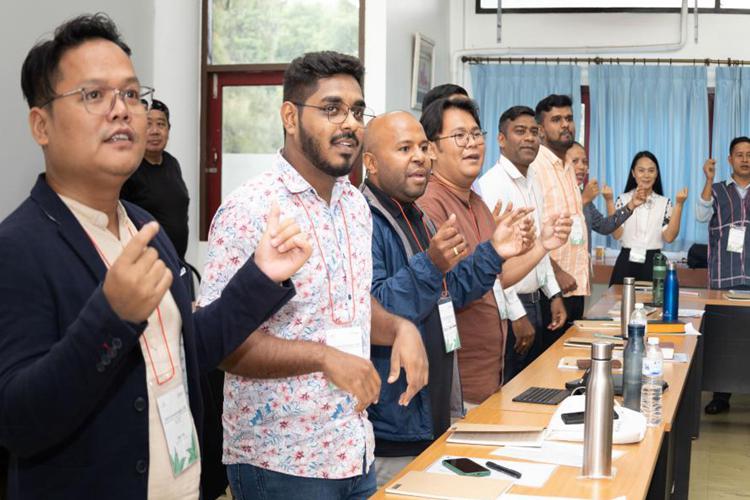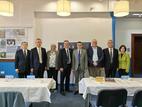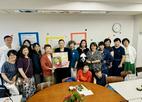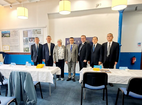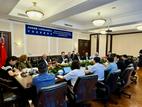The ecumenical formation training is jointly organized by the Christian Conference of Asia (CCA) and the World Council of Churches (WCC).
Held at the CCA's headquarters on the Payap University campus, Chiang Mai, Thailand, the institute has drawn 25 participants.
Highlighting the interconnectedness between faith and creation care in the context of ecological crisis, the deliberations at the Asian Ecumenical Institute will help the participants learn about eco-justice from deeper biblical theological perspectives, and emerging socio-economic and political contexts in Asia.
Topics include “Transforming Mission in Changing Global Society,” “Rhythms of Asian Spirituality,” “Peace and Security in Asia,” and many more.
Theologians, biblical scholars, social scientists, ecumenists, peace activists, development practitioners, and environmental activists will facilitate academic lecture sessions.
Participants will also visit inter-religious centres, dialogue with religious leaders, interact with ethnic and migrant communities from conflict-affected areas, and pray on Sundays with diverse Indigenous Christian communities belonging to different language and ethnic groups.
CCA general secretary Dr Mathews George Chunakara, in his opening address, welcomed this year’s cohort and expressed his joy in seeing young ecumenists attending the institute from lesser-represented areas in the Asian ecumenical movement such as Laos, Myanmar, Timor Leste, and West Papua, as well as representatives from the Mae La refugee camp, one of nine camps along the Thai-Myanmar border housing refugees from Myanmar.
Chunakara highlighted the unique opportunity that participants receive during the month-long training programme to live, learn, and interact with people from diverse Asian cultures and ecclesial backgrounds, and gain knowledge from some of the best resource persons in different fields.
Rev. Dr Benjamin Simon, director of the WCC Commission on Ecumenical Education and Formation and dean of the Ecumenical Institute at Bossey, agreed that the Asian Ecumenical Institute—as one of the Regional Ecumenical Institutes—carries many opportunities.
“At a Regional Ecumenical Theological Institute, the participants always benefit a lot from each other; they learn from each other and enrich each other, and eradicate barriers and prejudices,” said Simon. “The cooperation between the Christian Council of Asia and the WCC programme for Ecumenical Theological Education enables us to bring contextual theologies into conversation not only in the region but with a global horizon.”
Originally from Webpage "The WCC"
CCD edited and reprinted with permission

